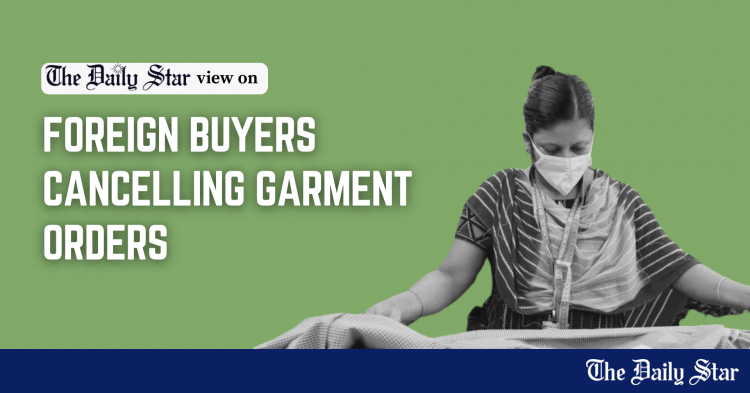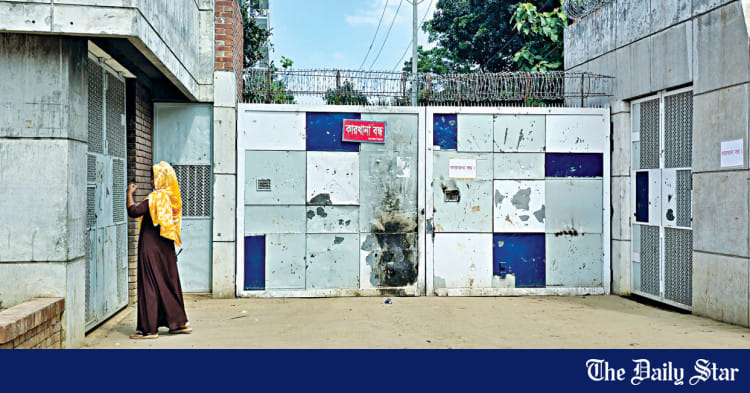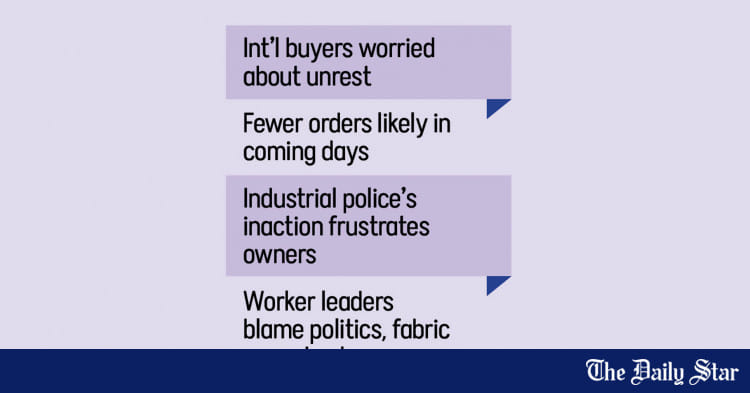Saif
Senior Member
- Joined
- Jan 24, 2024
- Messages
- 15,405
- Nation

- Axis Group


RMG export to US falls in Jan-July
Bangladesh’s apparel exports to the United States in January-July of 2024 witnessed a significant fall both in value and volume while the other competing countries, such as China and Vietnam, performed well in the market...
 www.newagebd.net
www.newagebd.net
RMG export to US falls in Jan-July
Staff Correspondent 05 September, 2024, 22:37

A file photo shows workers sewing clothes at a readymade garment factory in Narayanganj recently. Bangladesh’s apparel exports to the United States in January-July of 2024 witnessed a significant fall both in value and volume while the other competing countries, such as China and Vietnam, performed well in the market. | New Age photo
Bangladesh’s apparel exports to the United States in January-July of 2024 witnessed a significant fall both in value and volume while the other competing countries, such as China and Vietnam, performed well in the market.
The country’s apparel exports to the US, the largest export destination for Bangladesh, declined by 10.27 per cent to $4.10 billion in the first seven months of 2024 compared with that of $4.57 billion in the same period of 2023, according to the data released by the Office of Textiles and Apparel under the US Department of Commerce.
In terms of volume, Bangladesh exported 1.33 billion square metres of apparel from January to July period of 2024, a 4.55-per cent decrease from 1.39 billion square metres exported during the same period of the previous year.
Exporters said that the US buyers decreased their orders in Bangladesh due mainly to long shipment time.
Due to a shortage of gas and electricity, as well as complexities in banking and customs procedures, the shipment of export goods has been delayed, they said.
Negative growth in apparel export earnings from the US market persisted, as the underlying issues remained unresolved, Bangladesh Knitwear Manufacturers and Exporters Association president Mohammad Hatem told New Age on Thursday.
He said that the persistent shortages of gas and electricity, combined with the complexities of opening letters of credit with banks and delayed customs procedures, were continuing to cause shipment delays and adversely affected overall export performance.
Hatem, however, hoped that the apparel exports to the market would get momentum in the coming months as the interim government was working to improve the situation.
The OTEXA data showed that overall US apparel imports declined by 4.65 per cent to $43.63 billion in the first seven months of 2024, down from $45.76 billion in the same period of 2023.
Apparel imports by the US from China in January-July period of 2024 declined by 4.22 per cent to $8.76 billion from $9.14 billion in the same period of the previous year.
Vietnam’s apparel exports to the US totalled at $8.09 billion in the first seven months of 2024, reflecting a 1.54-per cent year-over-year decrease, according to the data.
The OTEXA data, released on Wednesday, showed that Bangladesh’s position remained unchanged as the third-largest apparel exporter to the US market with 9 per cent share while China and Vietnam occupied the first and the second highest positions with 21.09 per cent and 18.54 per cent share respectively.
The OTEXA data revealed that the US apparel imports from Cambodia grew by 5.96 per cent to $1.91 billion in January-July 2024 compared with that of $1.8 billion in the same period in 2023.
In the first seven months of 2024, India’s readymade garment exports to the US market decreased by 2.21 per cent to $2.85 billion.
Meanwhile, Indonesia saw a decline of 7.86 per cent, with exports totalling at $2.28 billion during the same period.
Staff Correspondent 05 September, 2024, 22:37
A file photo shows workers sewing clothes at a readymade garment factory in Narayanganj recently. Bangladesh’s apparel exports to the United States in January-July of 2024 witnessed a significant fall both in value and volume while the other competing countries, such as China and Vietnam, performed well in the market. | New Age photo
Bangladesh’s apparel exports to the United States in January-July of 2024 witnessed a significant fall both in value and volume while the other competing countries, such as China and Vietnam, performed well in the market.
The country’s apparel exports to the US, the largest export destination for Bangladesh, declined by 10.27 per cent to $4.10 billion in the first seven months of 2024 compared with that of $4.57 billion in the same period of 2023, according to the data released by the Office of Textiles and Apparel under the US Department of Commerce.
In terms of volume, Bangladesh exported 1.33 billion square metres of apparel from January to July period of 2024, a 4.55-per cent decrease from 1.39 billion square metres exported during the same period of the previous year.
Exporters said that the US buyers decreased their orders in Bangladesh due mainly to long shipment time.
Due to a shortage of gas and electricity, as well as complexities in banking and customs procedures, the shipment of export goods has been delayed, they said.
Negative growth in apparel export earnings from the US market persisted, as the underlying issues remained unresolved, Bangladesh Knitwear Manufacturers and Exporters Association president Mohammad Hatem told New Age on Thursday.
He said that the persistent shortages of gas and electricity, combined with the complexities of opening letters of credit with banks and delayed customs procedures, were continuing to cause shipment delays and adversely affected overall export performance.
Hatem, however, hoped that the apparel exports to the market would get momentum in the coming months as the interim government was working to improve the situation.
The OTEXA data showed that overall US apparel imports declined by 4.65 per cent to $43.63 billion in the first seven months of 2024, down from $45.76 billion in the same period of 2023.
Apparel imports by the US from China in January-July period of 2024 declined by 4.22 per cent to $8.76 billion from $9.14 billion in the same period of the previous year.
Vietnam’s apparel exports to the US totalled at $8.09 billion in the first seven months of 2024, reflecting a 1.54-per cent year-over-year decrease, according to the data.
The OTEXA data, released on Wednesday, showed that Bangladesh’s position remained unchanged as the third-largest apparel exporter to the US market with 9 per cent share while China and Vietnam occupied the first and the second highest positions with 21.09 per cent and 18.54 per cent share respectively.
The OTEXA data revealed that the US apparel imports from Cambodia grew by 5.96 per cent to $1.91 billion in January-July 2024 compared with that of $1.8 billion in the same period in 2023.
In the first seven months of 2024, India’s readymade garment exports to the US market decreased by 2.21 per cent to $2.85 billion.
Meanwhile, Indonesia saw a decline of 7.86 per cent, with exports totalling at $2.28 billion during the same period.










































